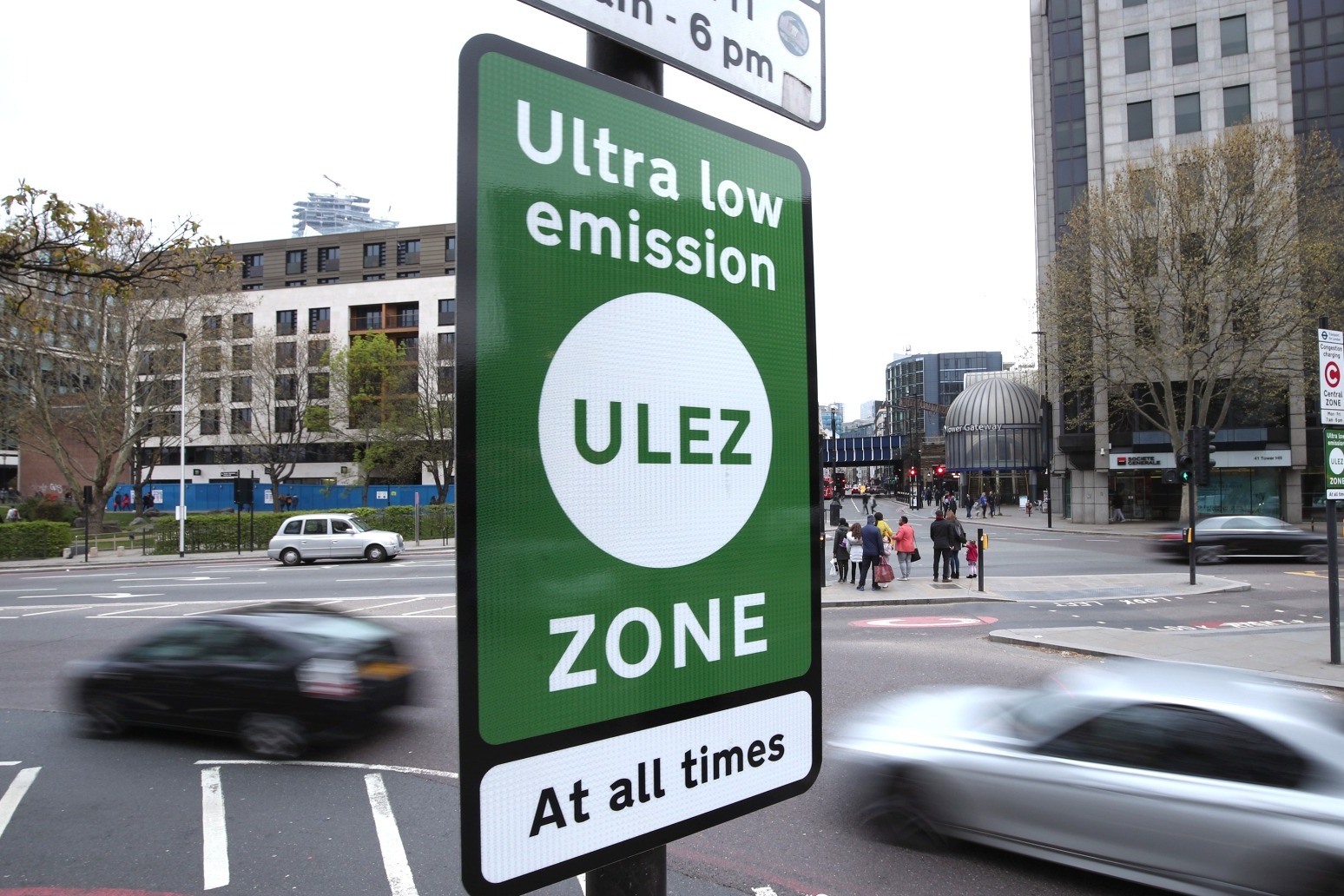
Cars set to be sent to Ukraine under Ulez scheme
Transport for London is to amend the ultra-low emission zone (Ulez) scrappage scheme to allow non-compliant vehicles to be donated to Ukraine, under plans announced by mayor Sadiq Khan.
He has asked the transport body to make the move after Transport Secretary Mark Harper told him there is no “legal barrier” to cars being donated to Ukraine through the Ulez scrappage scheme.
Mr Khan had asked the Cabinet minister in December to enable 4x4s and other suitable vehicles that would otherwise be scrapped to be sent to Ukraine, with their owners still receiving a payment.
He says these plans, which could be launched in weeks, “will help meet medical and humanitarian needs while also helping to remove old polluting vehicles from London’s roads”.
Applicants will be able to donate vehicles that are not Ulez compliant in return for the same grant payment available to drivers who scrap or retrofit their vehicles.
The donated vehicles will be permanently transferred to Ukrainian authorities and their partners for humanitarian and medical needs.
The scheme could be launched once it has been given formal approval and TfL has updated its rules and processes.
London Ambulance Service (LAS) is planning to join the effort by donating 50 decommissioned ambulances to Ukraine – 10 in the next few weeks with a further 40 by the end of the summer.
Ambulances are not charged to drive in the Ulez but LAS plans to steadily decommission non-compliant vehicles.
The donation announcement coincides with the second anniversary of the Russian invasion which has damaged Ukraine’s health care system and infrastructure.
Kyiv’s mayor, Vitali Klitschko, reportedly wrote to his London counterpart to suggest donating vehicles as part of the scrappage scheme.
On Friday Mr Khan said: “Two years on from Russia’s devastating illegal invasion of Ukraine, I continue to do all I can to help those affected, including supporting Ukrainians seeking help in London and signposting where Londoners can make donations.
“Alongside the human toll of the conflict, there has been a significant impact on Ukraine’s infrastructure, and these plans to donate non-compliant vehicles will help meet medical and humanitarian needs while also helping to remove old polluting vehicles from London’s roads.
“The scrappage scheme is open to all Londoners with an eligible non-Ulez compliant vehicle and is playing a key part in my mission to clean up our city’s toxic air.”
The charity British-Ukrainian Aid (BUA), which works with grassroots organisations in Ukraine where it procured and delivered more than 300 medical and evacuation vehicles during 2023, is to help organise the rollout of the new measures.
BUA will provide documentation for people to receive their scrappage grant, transfer the vehicles to Ukraine and report on the number of donated vehicles.
Eduard Fesko, from the Ukrainian embassy in the UK, described the plans as “a unique opportunity to give a second life to vehicles by donating them to Ukraine, which can help save human lives”.
He added: “This initiative can benefit Ukraine and London greatly, and the embassy of Ukraine in the United Kingdom is proud to support this initiative and encourages all charity organisations and volunteer groups to join this effort.”
Rainer-Elk Anders, of British-Ukrainian Aid, said the organisation is “grateful to all Londoners who will give their vehicle a second life to help saving lives in Ukraine and we are delighted to be a part of the scheme”.
LAS chief executive Daniel Elkeles said: “Almost two years ago staff and volunteers from across the London Ambulance Service drove across Europe to donate ambulances and supplies to Ukraine. Sadly, the conflict and suffering continues to this day.
“We are donating recently decommissioned ambulances which we can no longer use, but have refurbished in support of the Ukrainian people.
“Our thoughts remain with our colleagues in the ambulance service there as they do their work in such challenging circumstances.”
The Ulez area was expanded to include the whole of the capital in August, making it the world’s largest pollution charging area.
People who drive in the zone in a vehicle that does not meet minimum emissions standards are required to pay a £12.50 daily fee or risk a £180 fine, reduced to £90 if paid within 14 days.
A £160 million scheme run by TfL enables residents, small businesses, sole traders and charities scrapping non-compliant cars to claim grants.
Published: by Radio NewsHub